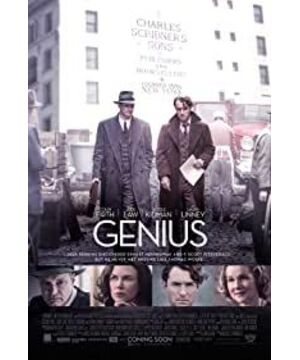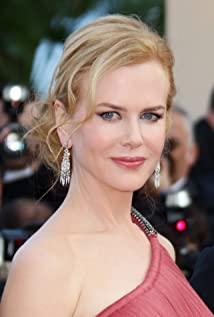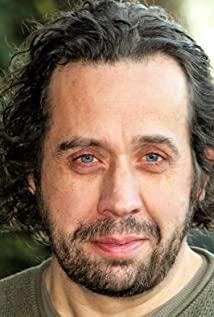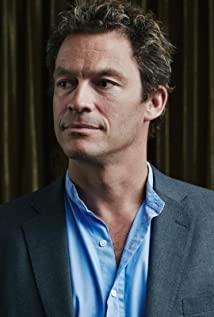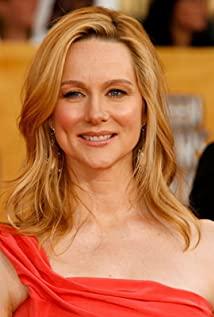Sitting down and looking at the name, I feel that this film feels that the writer should not be the protagonist. Sure enough, the plot unfolds slowly, and my male god is the famous catcher of talented writers - Maxwell Ewarts Perkins, who excavated the editors of the best writers of the Jazz Age.
Compared to some of the movies I've seen about author biographies, Jane Austen, The Shining Star, I don't think it makes sense to call this mediocre.
I don't talk about acting, and I don't accept the statement that my male god is paralyzed. As soon as Colin Firth started reading poetry, I felt like I could play it a hundred times without getting tired of it. There are three very impressive scenes. First, when revising Time and River, Thomas’s second masterpiece, the two had a disagreement about the way the protagonist Eugene fell in love in the book. Thomas used a lot of adjectives to describe " That girl", the male god commented on Thomas' tirade as cliché, which Thomas completely opposed. You come and I go back and forth, and in a tit-for-tat, the male god said a paragraph, to the effect that your entire work is magnificent, lightning and thunder, and this most important moment of falling in love should be the most bizarre and calmest. I totally agree with my man, and so does Thomas, chasing my man in New York's Grand Central to say "I love you". (Friendly reminder that the movie has nothing to do with the relationship)
The second point is that Thomas took the male god to the jazz bar and ordered the quiet flow of the Afton River, which is the favorite of the male god. Thomas made a foreshadowing, and it was the standard at the beginning. version, he said it was Flaubert and James Joyce, and then suddenly it was jazz, and he said it was Thomas Wolfe. This method is used to protest the male god's request for the deletion of his novel, and to show his own style.
In a third memorable scene, the two meet face-to-face in Perkins' office before the novel Time and Rivers goes to press, and Perkins speaks out about his fears as an editor. Thomas once accused that if Tolstoy met him, war and peace would become "war and nothing". Perkins' claim to the novel is pure, Thomas is used to long. Faced with the pressure of rave reviews for Thomas's first novel, Angel's Hometown, Perkins felt that the creation of a literary work as an editor had completely changed the work.
After the story is over, the supporting cast of this film is great, even if I didn't know Perkins discovered Hemingway and Fitzgerald at first, when they show up, you can tell who they are by their lines. But in terms of casting, I feel that both Fitzgerald and Zelda in the film are much thinner than the real photos I've seen. It may also be to highlight Fitzgerald's later creative life because of Zelda. The mental illness, like Zelda, was tortured to the point of completely losing the charm of a talented writer, which is very different from the sassy Fitzgerald and the beautiful and plump Zelda in the other film Midnight in Paris. Far.
I think the lines of the movie are impeccable, and even have some deep meanings in many places. It also exposes some of the discord among the writers labelled as Jazz Age, as well as some character flaws.
The real Thomas Wolfe was indeed considered high-profile by Hemingway, and Hemingway also believed that Zelda destroyed Fitzgerald. But what about Hemingway himself, Faulkner, another great master of southern novels, to him, he was completely "a life of beauty and a bright future". Hemingway probably lived in the shadow of Faulkner all his life, even if he committed suicide by swallowing a gun. To prove his courage, he was also evaluated by Faulkner as "taking a shortcut home".
In the film, the standard version of the novel is based on "Flaubert and James Joyce" as a model, and it is not just casual. James Joyce was the founder of postmodern literature, and Flaubert, "single-handedly established the modern realist narrative known to most modern readers, and whose influence we are all too familiar with to ignore". Flaubert is to modern novelists what the Qinghai-Tibet Plateau is to the Yangtze and Yellow Rivers.
Then there is the question of whether editors and authors have influence on literary works. Through the film, it is obvious that the influence of editing on the work can be completely described as "makeover". Thomas' narrative is pompous and flamboyant, but Perkins's aesthetic is concise and forceful, though he still considers him a genius. This passage is easily reminiscent of another ill-fated writer, Raymond Carver. Carver's famous book "What We Talk About When We Talk About Love", thanks to editor Gordon Leish, has about 50% less content before publication, and the editor strives to portray Carver as a The successor of minimalism after Hemingway, but Carver obviously did not appreciate it. "One day, I will restore these short stories to their original appearance and republish them word for word." This sentence now appears in Carver's book cover as a book cover. The uncensored version of What Are We Talking About When We Talk About Love, which is on top of The Newbie. When I read "What Are We Talking About When We Talk About Love" a few years ago, I vaguely felt that the title of this short story was far from the content, but I didn't know why. It wasn't until after Carver's work was drastically cut out that it wasn't until then why. But it is an indisputable fact that Carver's works have sold well because of the role of editors. This goes back to the part where Fitzgerald and Thomas quarreled in the movie. It's really Perkins who made you, gave you career, gave you fame.
The editor and the author really are a couple who love and kill each other.
The last interesting place is whether the title of a book has a decisive influence on whether a work will sell well. The original title of The Great Gatsby is unforgettable and unimpressive. The original name of Angel Hope's hometown is Oh, Lost. Carver's when we talk about love what are we talking about the original name novice, even the title of this structure was taken by Carver's follower and admirer Murakami Murakami to make his own book title, when I talk about running I talk about it what.
Citation: "The Newbie", Raymond Carver's
"The Fiction Machine", James Wood, translated by Huang Yuanfan,
"The Chickens That Lay Eggs" , Ading
View more about Genius reviews


